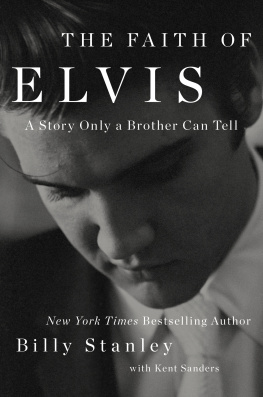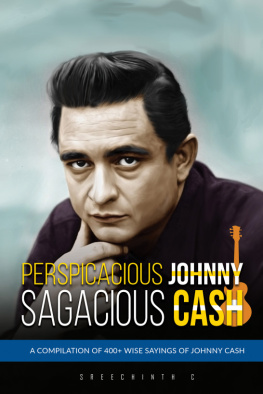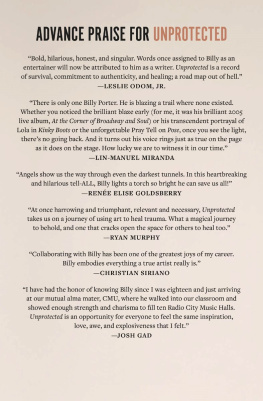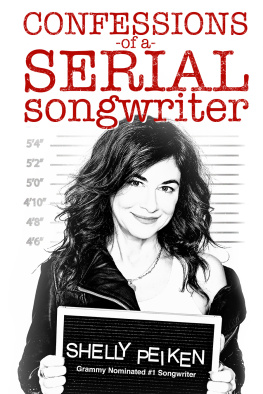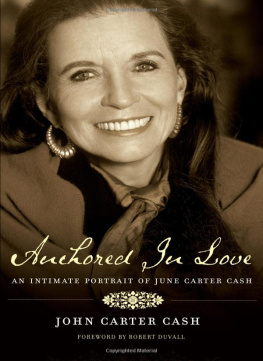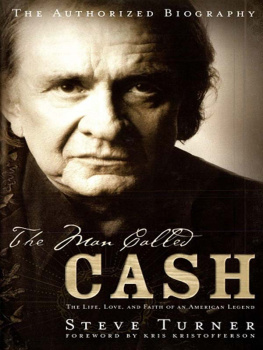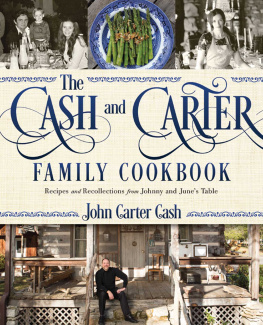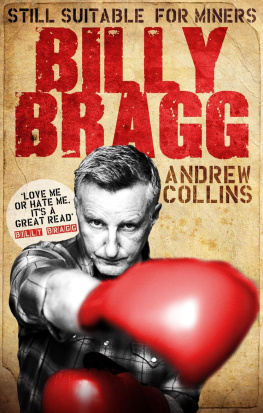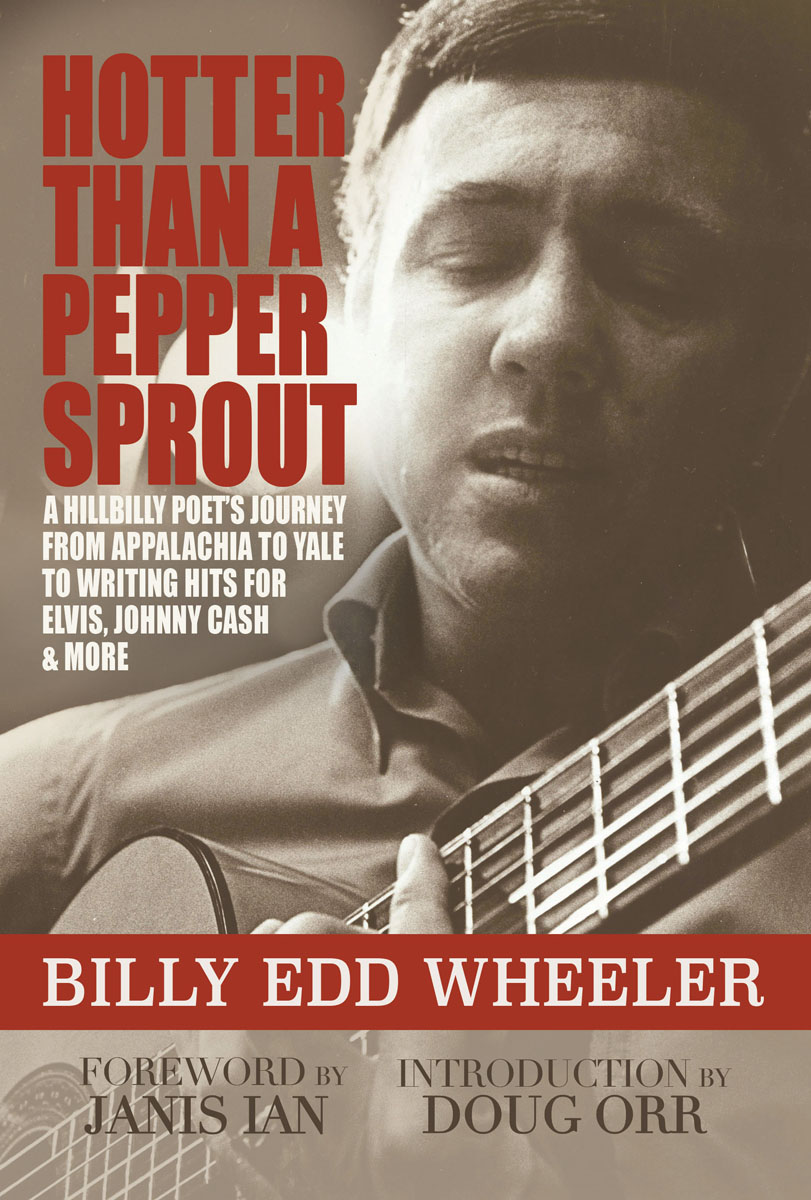

HOTTER THAN A PEPPER SPROUT:
A HILLBILLY POETS JOURNEY FROM APPALACHIA TO YALE TO WRITING HITS FOR ELVIS, JOHNNY CASH & MORE
Copyright 2018 by Billy Edd Wheeler. All rights reserved. Printed in the United States of America. No part of this book may be reproduced in any form without written permission from the publisher, with the exception of brief passages embodied in critical articles and reviews.
Cover design by Christopher Miles.
Book production by Adept Content Solutions.
Song lyrics reprinted courtesy of the following publishers. Words and music by Billy Edd Wheeler, except where noted.
Gunnertown (words and music by Dr. Henry W. Jensen) 1958; Rock Boll Weevil 1959; I Aint Goin Home Soon, Love to My Love, Sassafras, Farewell Brother 1961; A Wedding Song for Mary and Billy Edd Wheeler (words and music by Dr. Henry W. Jensen) 1963; Mississippi Magic (words and music by Will D. Campbell) 1969; Buckskin Buddies 1978; In Your Spanish Eyes (words and music by Billy Edd Wheeler and Chet Atkins) 1978; The Ballad of Edsel Martin 1980; Asheville 1981.
Above titles published by Sleepy Hollow Music. Used by permission. All rights reserved.
Desert Pete 1962; Blue Roses, Coal Tattoo, High Flyin Bird, Winter Sky 1963; Red Winged Blackbird, The Coming of the Roads, Ode to the Little Brown Shack Out Back 1964; They Cant Put It Back 1966.
Above titles published by Quartet Music, All Rights Administered by BMG Rights Management (US), LLC. / Words West LLC, d/b/a Butterfield Music. Used by permission. All rights reserved.
The Reverend Mr. Black (words and music by Billy Edd Wheeler, Jerry Leiber and Mike Stoller) 1962; Jackson (words and music by Billy Edd Wheeler and Jerry Leiber) 1963.
Above titles published by Sony/ATV Music Publishing LLC /Words West LLC, d/b/a Butterfield Music. Used by permission. All rights reserved.
A Baby Again 1968; Having a Baby, Little Lucy 1969; Love 1970.
Above titles published by EMI U Catalog Inc. Used by permission. All rights reserved.
Gimme Back My Blues 1977 Universal Music Corp. Used by permission. All rights reserved.
Chain Gang of Love (words and music by Billy Edd Wheeler and Roger Bowling) 1979 Universal Music MGB Songs / Sleepy Hollow Music Corp. / Universal Music Careers. Used by permission. All rights reserved.
Step Lightly on the Earth 1993 Chinkypen Music. Used by permission. All rights reserved.
Swannanoa (words and music by Janis Ian) 2016 Rude Girl Publishing, Inc. Used by permission. All rights reserved.
ISBN: 9781947026025
Published by BMG
www.bmg.com

CONTENTS

FOREWORD
by Janis Ian
A Hill-Billie is a free and untrammeled white citizen of Tennessee, who lives in the hills, has no means to speak of, dresses as he can, talks as he pleases, drinks whiskey when he gets it, and fires off his revolver as the fancy takes him.
New York Journal, April 23, 1900
T o call Billy Edd Wheeler a hillbilly is to say that a man is only as good as his beginnings. Yes, he was raised in a coal mining town, and his speech still carries the lilt of Boone County, West Virginia. And, yes, he still dresses as he can, though I have yet to see him fire off a revolver. This early description is heavy on negative stereotypes but also captures a glimpse of the celebrated American values of self-sufficiency and independence. That romanticized duality is the only aspect of this definition where I catch a glimpse of Billy Edd. Hillbillies are not always what you might expect.
What do you do with a child like this, who spends his time dreaming of words and sounds no one else can see or hear? His yearning to get out, to become something more than his surroundings, is the same longing John Travolta felt in Saturday Night Fever, restless to become something bigger than the life laid out for him would allow. Its the same hunger I felt as a young girl in New Jersey, staring at the Manhattan skyline and vowing Id live there one day, with people like me.
Here is a man who can call the birds with a whistle. He writes legendary songs with the ease that you or I would write down someones telephone number. His garden is filled with sculptures carved from trees and rocks painted with faces you wish you knew. The walls of his home are hung with art I long to slip under my coat and steal like a thief in the night. The only thing holding me back is the certainty that he will visit my own home at some point and recognize the stolen works. Hed probably let me keep them, but one never knows.
My favorite work at the Wheeler home is an intricate sculpture of metal on prominent display in an airy room as comfortable as Billy Edd himself. It makes me think of swallows in flight. It makes me feel like Im dancing. Every time I look at it, I see something new. When I asked Billy Edd about it, he said, Well, when I first went up to New York, there was nothing in my little apartment except some wire hangers. I was so bored and so discouraged, I took those hangers and made that.
Hangers. Who makes a work of art from hangers? For that matter, who writes a hit song about an outhouse? Ill tell you who. A hillbilly who takes himself off to college at the age of sixteen, graduates, joins the navy, and ends up at Yale University a few years later studying to become a playwright. An artist who pens classic songs like Jackson, writes operas commissioned by the National Geographic Society, and creates books and plays too numerous to go into here.
Among writers, its common to say someone owns a particular subject matter. If one of us says, I think Ill write a book about the summer when I was twelve, another writer might say, Yeah, but Ray Bradbury owns twelve-year-old summers. You might say, I think Ill write about a great white whale and the man who hunts it down, but someone will tell you to go read Moby Dick, because Melville owns the great white whale. Frank Capra and Jimmy Stewart own the holiday-themed what-if-Id-never-lived? story. Charles Dickens owns greedy rich men at Christmas, their punishment, atonement, and redemption. And Billy Edd Wheeler owns coal, and coal country, and yes, God help me, little brown outhouses.
When I look at Billy Edd I see two people. The scared little boy who walked a mile through an unlit train tunnel at the age of eleven, with only a sapling he rubbed along the rail to guide him in the dark. Hell say he was running from his abusive stepfather, but he was really running from the life laid out for him, the assumption that it was the only life he could ever live.
Then I look again, and I see that incredibly brave little boy from coal country, who left it for the bigger world beyond but kept the best of it alive in his heart. He kept it alive so he could write it and sing it and paint itand teach people like me about it. As a twelve-year-old songwriter, just starting out, I listened to Coal Tattoo and heard:
Blood veins blue as the coal
I began to understand that you could use beautiful words to write about something ugly, sneaking in under the radar before the listener even knew what had happened.
Next page


